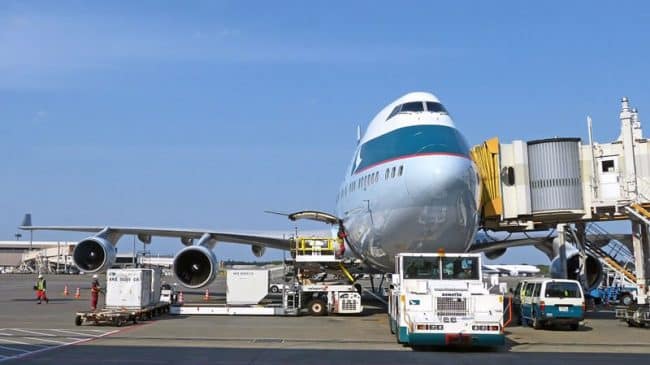Federal airport-security screeners are on the job at JFK, but is that a good thing? JFK’s old screeners ranked among the best at spotting weapons in undercover security checks before the feds took over. And the agency managing the new screeners, the Transportation Security Administration, is a mess.
Transportation Secretary Norm Mineta recently fired the top man at TSA, but he’s still laying the blame for the agency’s woes on Congress and its reluctance to write TSA a blank check. But instead of just forking over more money, Congress should snatch this opportunity to go back and fix the airport-security law.
After all, Congress has already approved $3.8 billion in extra funding – so that the TSA’s budget now exceeds the FBI’s. But Mineta says he needs even more cash.
Remember, TSA is only responsible for passenger and baggage screening – the airports themselves are still responsible for securing the other crucial parts of the airport. Nevertheless, TSA estimates they’ll need over 60,000 employees, up from the original 28,000.
Those screeners are all supposed to be in place at the nation’s 429 airports by mid-November. But TSA has so far hired and trained only a few thousand.
Once that deadline is missed, the TSA will also fail to meet the Dec. 31 deadline for screening all checked baggage for explosives. Airports face multimillion-dollar construction projects just to house the minivan-sized explosive-detection machines. Denver International aviation manager Bruce Baumgartner tells Time magazine, “I can have either machines or people in my terminal. I can’t fit both.” The image of people waiting outside in the snow while their bags are searched makes the airlines shiver and could severely cripple the already struggling industry.
Baumgartner and 38 other airport operators saw enough problems with the system that they stuck their necks out and signed a letter to Mineta asking him to reconsider deadlines. Taking a public stance like that can be career suicide. These officials are in the trenches and they aren’t saying the current legislation is bad because it is inconvenient or expensive; they are speaking out because it isn’t improving security.
A few elected officials have heard the cries for help. Rep. John Mica (R-Fla), Rep. Dick Armey (R-Texas) and Rep. Kay Granger (R-Texas) pushed for an extension of the baggage-screening deadline.
But deadlines are just part of the problem. The machines that TSA purchased to screen luggage give false positives, or miss explosives entirely, more than 30 percent of the time. And they’re agonizingly slow, scanning just 150-200 bags per hour under real-world conditions.
Salt Lake City International Airport used the TSA’s explosive-trace-detection machines during the 2002 Winter Olympics and averaged a paltry 76 bags per hour – a number that would bring U.S. air travel to a stop.
There are better, faster, cheaper machines available. But, in typical fashion, our government has yet to approve the most reliable and quickest screening machines now used in Europe’s airports. So instead, we are buying untrustworthy, expensive machines to meet a self-imposed deadline.
If TSA had a clue, they’d look to England for help. After the 1988 Pan Am bombing over Lockerbie, England instituted a baggage-screening program (and implemented it over eight years – not one year, as we’re trying to do).
The three main London airports use automated X-ray machines as preliminary screening devices for most travelers. The machines scan 1,200 to 1,500 bags per hour and flag about 30 percent of the bags as suspicious. That 30 percent is routed to another machine, where an operator reviews the image on a screen. About 3 percent of those bags are then put through an explosives-detection system.
England’s system also focuses on high-risk passengers and their bags. The luggage of those deemed high-risk by the computer system or gate workers is sent directly to the explosive-detecting machines.
Experience tells us that grandma, traveling with two grandkids, is infinitely less likely to be packing explosives than the 20-something Middle Eastern male traveling alone on a one-way ticket bought with cash. To spend equal time examining their bags, as our system now requires, is simply insane.
We know a lot more about airport security than we did on Sept. 11. As we approach the one-year anniversary of that tragic day, we should put that knowledge to use and fix the obvious holes in the system by focusing on high-risk passengers, implementing a trusted traveler program, and investing in the best technology available.
Or we can cross our fingers and hope another group of terrorists doesn’t show us that we’ve spent billions of dollars trying to meet random deadlines and failed to secure our airports in the process.
Robert W. Poole, Jr. directs the Transportation Studies Program at the Reason Foundation. He advised the White House Domestic Policy Council and several members of Congress on ways to improve airport security following the 9/11 terrorist attacks.

